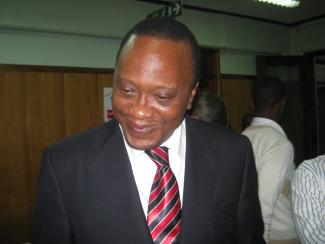News
In brief

The International Criminal Court (ICC) has discontinued proceedings against Kenya’s President Uhuru Kenyatta as well as investigations against Sudan’s President Omar al-Bashir. In both cases, it is proving difficult to deal judicially with dreadful violent crimes.
Kenyatta was the first sitting head of state to face trial before the ICC. He was accused of having indirectly been responsible for murder, rape, abduction and persecution in the context of the post-election riots that rocked Kenya in 2007/2008. Fatou Bensouda, the ICC prosecutor, had to admit that she could not provide sufficient evidence against him. Her problem was that an increasing number of witnesses were no longer willing to testify against Kenyatta. According to Bensouda, these people have been bought or threatened by the Kenyan government.
Bensouda also indicated disappointment in regard to the discontinued investigations against al-Bashir. The ICC had issued a warrant to arrest him because of genocide, war crimes and crimes against humanity in his country’s Darfur region. According to Bensouda, the UN Security Council did not do enough to ensure the warrant was enforced. Sudan’s president remained unchallenged during visits to several African countries. The Security Council is divided on Darfur. China, a permanent member, is an ally of Sudan. Bensouda called on the Security Council to modify “radically” its stance towards arresting suspects.
After horrific violence, the ICC is meant to ensure there is no impunity for high-ranking political leaders. Civil-society activists worry that the recent decisions make it look toothless. (sb)







